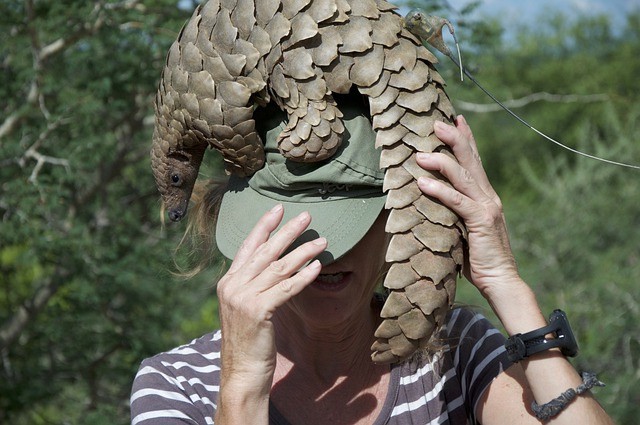
The Chinese government has officially eliminated pangolin scales from the list of 2020 approved traditional Chinese medicine ingredients, described by a move campaigners as a critical step in saving the most trafficked mammal of the world.
According to Science Alert, pangolins are insectivores covered with scales, nearly the size of a cat, that are greatly valued in Asian counties for both their meat and scales. More than 130 tons of products related to pangolin were seized by authorities last year, which is estimated to be up to 400,000 animals, as stated by conservation group WildAid.
Eight species of pangolins are found in Asia and Africa. The international Union for Conservation of Nature identified three species of pangolin as critically endangered- the Chinese Pangolin, Philippine pangolin, and Sunda pangolin, which could be found across Southeast Asia. The five remaining species, which include the Indian pangolin, are categorized as either endangered or vulnerable.
Even though pangolin scales are made of keratin, which is identical to the material found rhino horn and human fingernails, traditional Chinese medicine fosters the credence that they help reduce inflammation and improve blood circulation.
On Tuesday, the Chinese state-run media stated that the Chinese Pharmacopoeia, the government's official compendium of drugs that covers traditional Chinese and Western medicines, have already eliminated pangolin scales on the list of approved ingredients as an obligation to wild resources exhaustion.
In a report by CNN, according to David Olson, director of Conservation at WWF Hog Kong, these steps of the Chinese government will create great impact since actions like these are critical and needed to be taken if genuine conservation of these animals will happen.
Odson uttered that tradition Chinese medicine and consumption are said to have the most demands for pangolin that became the number top reasons for the illegal trade.
After China's State Forestry and Grassland Bureau made an announcement regarding the upgrade of the Chinese pangolin to a first-level protected wild animal, the top-level protection status along with tigers and pandas, a few days passed the decision to eliminate pangolin from the list was released.
9 News also reported that , Sophia Zhang, China Biodiversity Conservation and Green Development Foundation Pangolin Working Group director, stated that while she was glad by the result, she felt that the actions was quite late.
As stated by Zhang, many years have already passed and questioning the great number of pangolins which have been hunted and killed before the action was taken.
Trading of pangolin has caused a destructive impact on Asia's local population. The International Union for the Conservation of Nature said that since 1960 the population of pangolin in China have decreased by more than 90%.
Since pangolins were hunted in Asia to their limits, a booming trade have started in scales from African-native pangolin species. Between 2013 and 2019, two pangolin species native to Africa, the giant pangolin and white-bellied pangolin, have moved from being vulnerable to endangered due to reduced population.
In 2018, though China has banned pangolin products import, the trade was relentless, with regularly intercepted sizeable shipments on their way to the country.
According to Steve Blake, Beijing's WildAir chief representative, in recent years a public movement was growing inside China promoting eager protection for pangolins.








